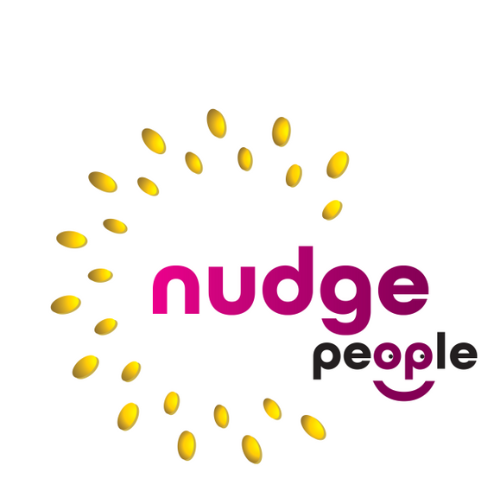Let’s be honest—career planning can feel overwhelming. For young people, the journey from education to employment is full of challenges. Schools often focus on academic success but don’t always prepare students for understanding real-world careers. The pressure to pick the right courses, choose a degree, or decide on a vocational path can feel immense. Add to that the influence of peers, family expectations, and social media showing seemingly perfect career paths, and it’s no wonder many feel lost. It’s hard to see what career paths look like in real life, let alone have the confidence to make decisions that shape your future. With so many choices, how do you know which path is right for you? The secret lies in knowing yourself. When you understand what makes you tick, you can make smarter decisions, stand out to employers, and find a career that makes you happy.
In this article, we’ll explain why learning more about your strengths and preferences is the ultimate career planning hack and how tools like the Harrison Career Navigator can help as you head into 2025.
Understanding Yourself is Key to Career Planning
The Concept of Career Stacking: Building Layers of Experience
Career stacking works best when paired with career clarity and self-awareness. When you know your strengths, interests, and values, you can intentionally choose experiences that build on each other. For example, if you understand that you excel in communication and problem-solving, you might start with a part-time retail job in senior school. This helps you practice customer interaction and conflict resolution—skills you can later expand on during university internships in sales or project management roles. Knowing yourself ensures every step you take adds value to your professional journey.
One of the most exciting parts of being young is that you have your entire life ahead of you. But here’s the catch: you likely won’t just have one career. In fact, most people will have multiple careers or roles across their lifetime. So, how do you make the most of this journey? The answer is career stacking.
Career stacking is about building layers of skills and experiences that complement each other over time. It starts in senior school, where you might focus on subjects that align with your interests and strengths. For example, if you enjoy problem-solving and working with technology, consider taking STEM-related courses. You can build on that foundation as you enter university or vocational training by choosing a specific significant or hands-on experience like internships.
Effective Career Planning, especially when regularly reviewed, helps you choose jobs that give you experience for the next move, which builds and allows you to stack careers and slowly build momentum over time.
Why Start Early?
Starting early gives you a head start. By the time you graduate, you won’t just have a degree—you’ll have real-world experiences, a network of connections, and a clearer sense of what you want. For instance, if you’re interested in business, participating in entrepreneurial competitions or joining student organizations can help you build leadership skills and confidence.
Career Stacking in Practice
Here’s how you can think about career stacking at different stages:
- Senior School: Focus on discovering what you enjoy. Explore extracurriculars, volunteer, or take on part-time jobs that give you a taste of different industries.
- University or Vocational Training: Use internships, co-op programs, and projects to gain hands-on experience. Think of these as opportunities to test-drive your potential career.
- Early Career: Don’t be afraid to pivot or try new things. Use your first few roles to learn about different aspects of your field and identify what excites you the most.
The Long-Term View
By stacking skills and experiences, you’re setting yourself up for a career that’s flexible and resilient. As industries change and new opportunities emerge, you’ll have the foundation to adapt and thrive. Think of it as building a toolbox where every tool (skill) adds value to your professional journey.
2. How Knowing Yourself Gives You an Edge in Career Planning
The Strengths vs. Weaknesses Dilemma
Sometimes, it feels like everyone wants us to fix what we’re bad at. Maybe you’ve been told to get better at math or to speak up more in class. While improving your weaknesses can help, it’s not where your real power lies. Your true potential comes from focusing on your strengths—those things you’re naturally good at and enjoy doing.
Think about it: Why spend hours trying to get a little better at something that drains you when you could double down on what lights you up? Maybe you’re amazing at talking to people and making them feel comfortable—that’s a strength you can build into a career in counselling, customer service, or even event planning. Or perhaps you’re great at coming up with creative ideas—this could lead to roles in marketing, design, or entrepreneurship.
The Harrison Career Navigator System (CNS) is awesome because it helps you discover these unique strengths. It’s like having a personal guide to show you what makes you stand out. For example, you might learn you’re a natural leader, an incredible problem-solver, or super adaptable. Instead of worrying about what you can’t do, you’ll gain confidence in the things you already excel at. And when you focus on those, you’re unstoppable.
Matching Your Strengths with the Right Opportunities
Here’s the thing: When your strengths match your job, you don’t just survive—you thrive. Let’s say you’re great at organizing and planning. A role in event management or logistics could be your dream gig. On the flip side, if you’re super empathetic and love helping people, you might shine in counselling or customer service.
Take Josh, a recent graduate who felt lost after leaving university. He thought he wanted to work in marketing because it seemed creative and fun, but he struggled with the constant pressure to hit sales targets. After reflecting on his skills and using tools like the Harrison Career Navigator, he realized his strength was in building relationships. Now he works as a client success manager, where his natural empathy and communication skills shine.
3. Why Employers Care About Insight in Career Planning
Helping Them See the Real You
Employers want to know what you’ve done and how you’ll fit into their team. You make their decision easier when you share insights about your work style—like loving collaboration or being great under pressure. It’s like giving them a sneak peek of what it’s like to work with you.
Imagine you’re applying for a job that involves handling high-pressure situations. You can highlight this in your application if you know you’re good at staying calm under stress. Maybe you’ve managed a school event where everything went wrong, but you kept your cool and found solutions. Sharing this kind of insight helps employers see your potential. Good Career Planning will help you navigate these issues and feel more confident to present yourself.
Finding the Best Fit for Everyone
The best teams are made up of people whose strengths complement each other. By understanding your own skills and preferences, you can help employers see where you’d fit best, which makes for a win-win situation.
For example, a hiring manager looking for someone to bring fresh ideas to their team will be drawn to a candidate who can clearly explain how they’ve innovated in the past. Knowing your strengths and communicating them well makes it easy for employers to see your value.
4. How to Get to Know Yourself Better
Try Career Assessment Tools
Tools like the Harrison Career Navigator are a game changer. They don’t just give you generic advice—they dig into your unique strengths, work preferences, and motivators. For example, it might show you’re great at innovation and problem-solving, pointing you toward creative roles.
What’s great about these tools is that they take the guesswork out of career planning. You get detailed insights that help you focus on opportunities where you’ll excel.
Work with a Career Coach
Working with a career coach can be a game changer, especially when paired with tools like the Harrison Career Navigator System (CNS) to understand your strengths and potential.
A coach can help you interpret the CNS results, connecting the insights to your career goals. The CNS doesn’t just tell you what jobs might suit you—it goes deeper, revealing how your unique strengths align with specific roles and industries.
Imagine knowing exactly what kind of work environment helps you thrive or how your problem-solving skills could make you a leader in your field. A career coach uses this information to create a personalized action plan, whether that means exploring new career paths, sharpening your resume to highlight your strengths, or preparing for interviews with confidence.
Career Planning is like building your own adventure—there’s no one-size-fits-all path, and that’s what makes it exciting! Whether you’re just starting out or halfway through your career, the best time to reflect, plan, and take charge is always now. With tools like the Harrison Career Navigator, you can uncover the strengths that make you, well, you. Whether you want to climb the corporate ladder, switch things up entirely, or just feel more purposeful in what you do, the possibilities are endless.
So, go ahead—dream big, make bold moves, and remember that every step you take shapes your life’s story. Here’s to finding (and owning) your next chapter. Let’s make it an adventure worth telling!
Understanding yourself is the first step to finding a career you’ll love. It’s not just about knowing what you’re good at but also about

